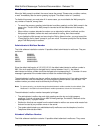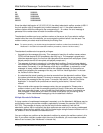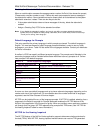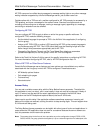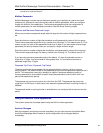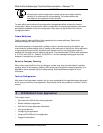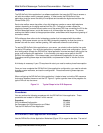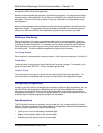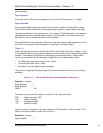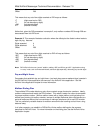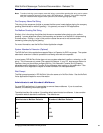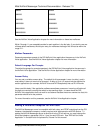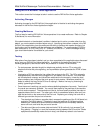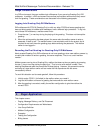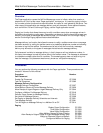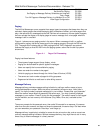
Mitel NuPoint Messenger Technical Documentation - Release 7.0
When the server has received the proper number of digits, it answers the call with the mailbox
owner’s greeting.
Digits Expected
Enter the number of digits that are supplied by the CO to this DID trunk group (1-11 digits).
Digits Absorbed
If the number of digits expected is greater than the number of digits in a valid mailbox number,
the DID NuPoint Voice application can be programmed to ignore or “absorb” these extra digits.
The digits are absorbed in the order received. For example, if Digits Absorbed = 2, the software
absorbs (ignores) the first two digits that it receives. See examples 1 and 2 at the end of this
discussion for a more complete illustration of this operation.
On the DID NuPoint Voice Application Worksheet, enter the number of digits supplied by the CO
to this DID trunk group that are to be ignored or “absorbed” (1 through 9 digits).
Offset (+/-)
Ideally, the digits that the server receives from the CO should match the mailbox number. If this
is not possible, the server must map these digits (or convert them) into the corresponding mailbox
numbers. One method of doing this is to absorb digits, as mentioned above. Another option
(which can be combined with the absorption of digits) is to add a signed offset number:
• To subtract from prefix digits, use a minus (-) offset.
• To add to prefix digits, use a + offset.
• Use offset = 0 to pass digits through unchanged.
The process of mapping DID received digits into mailbox numbers can be seen in the following
examples:
Figure 3-2 Sample DID NuPoint Voice Application Worksheet
Example 1. Assume:
Digits expected 4
Digits absorbed 1
Offset -100
This means that any set of four digits, as received on DID, maps as follows:
3275 (digits received on DID)
275 (absorb one digit)
-100 (add signed offset)
175 (mailbox number)
Under the same circumstances, receiving a sequence of 3276 results in mailbox number 176, a
3280 is converted to mailbox number 180, and so on.
Example 2. Assume:
Digits expected 2
©
Copyright 2002, Mitel Networks Corporation 31



